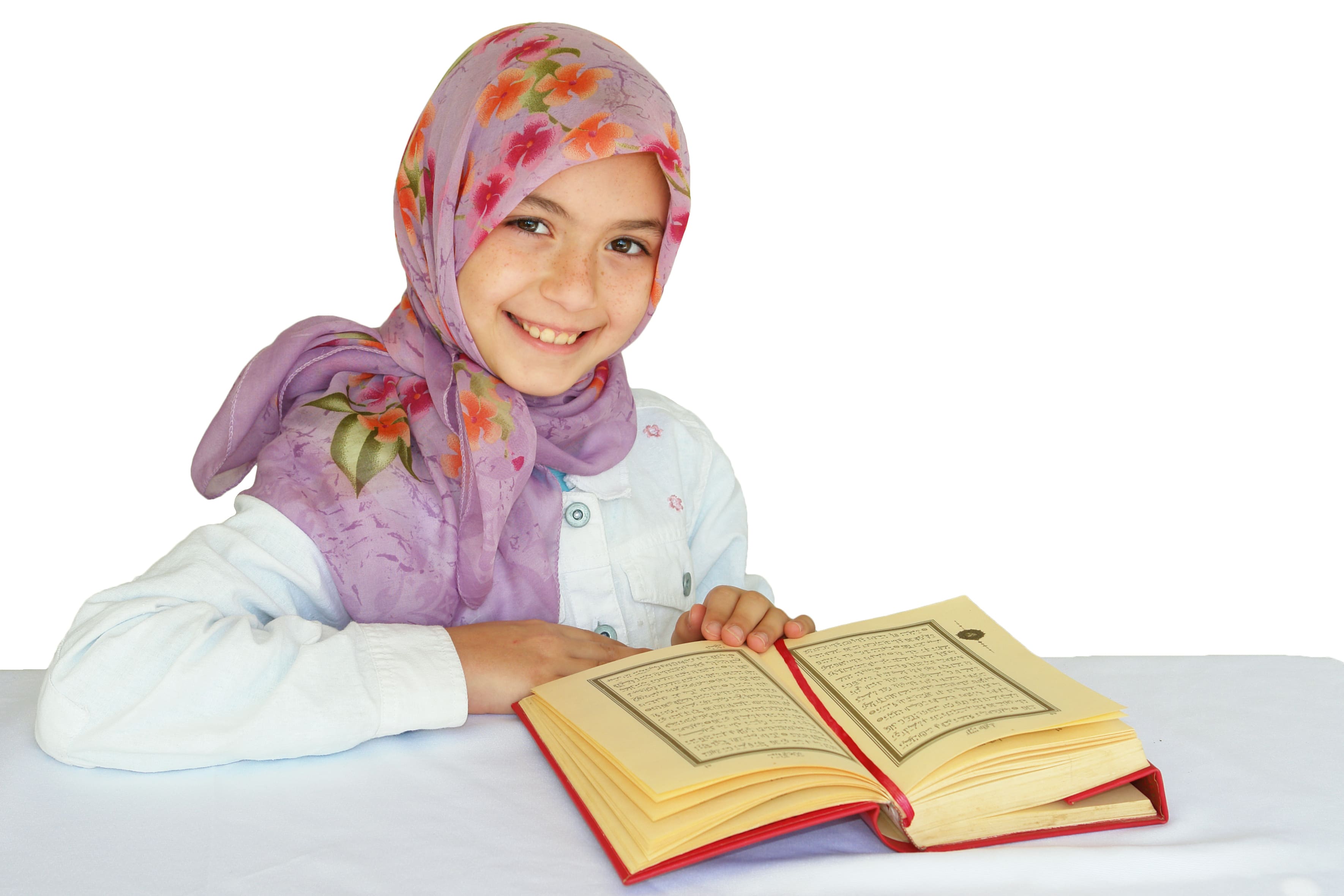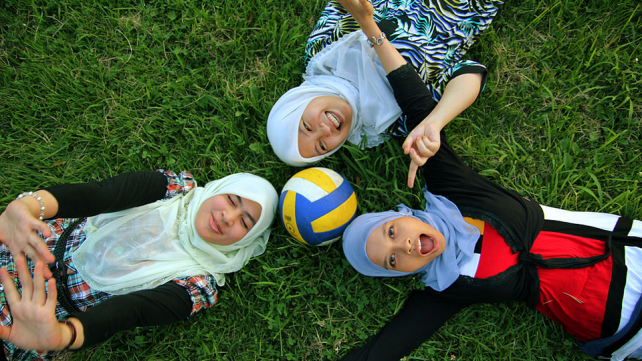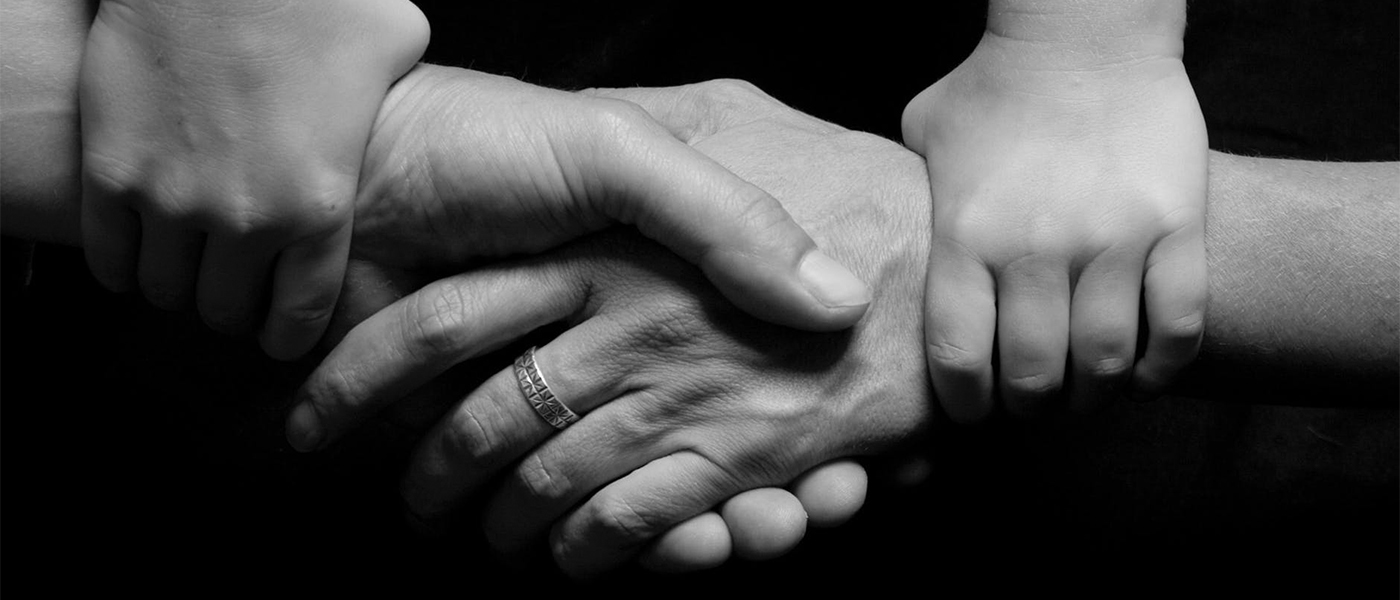

Is Adopting Children Permitted in Islam?
Many incidents happen in societies which make so many children orphans, Incidents such as earthquakes, floods, tsunamis, or smaller events. Thus, the issue of taking care of these orphan kids becomes a challenge that should be dealt with. Many of these children may be sent to orphanages by the government.
And they keep waiting for some family to adopt them and take care of them. But, there are many parents who cannot give birth to a child and they wish to adopt one and make their family bigger. Some parents may have children of their own, and they want to adopt a child to help and take care of him/her.
This text explains the rulings of adopting a child according to the Islamic law.
The Difference Between Adoptive Children and Biological Children
There are four major differences in Islamic law between adoptive and biological children:
1- Adopted children are better to be named after their biological parents. If they are named after their adoptive parents, the foster parents should not precisely introduce them as their own child. (This is forbidden (Haram) since it is a lie.)
2- Adopted children do not automatically inherit from their adoptive parents. Unless it is mentioned in the parents’ will.
3- When adopted children become mature (Baligh) they will become of the marriageable kin (non-Mahram) to their adoptive family (parents, brothers/ sisters, uncles/ aunts).
4- The property of an adopted child (provided by his/her biological parents or family members) belongs to him/ her. Adoptive parents will keep it as mere trustees.
The Importance of Supporting Orphans in Islam
Islam has careful considerations towards orphans. Prophet Muhammad (PBUH&HP) himself had adopted a child and was fed by an adoptive mother during the first two years of his life.
It is narrated by Prophet Muhammad (PBUH) that “‘ The one who sponsors an orphan and I are like these two in Paradise.’ Then he joined his index and middle fingers” [1].
Orphans are so important in the eyes of God that Allah says in the Holy Quran “Indeed those who consume the property of orphans wrongfully, only ingest fire into their bellies, and soon they will enter the Blaze.” (4: 10)
There are specific rules in Islam with regards to adopting children.
In Islam, biological parents and the family lineage are of great significance. So, child adoption must not occur in a way that children lose their filiation. It is essential to keep in mind that according to Islam, filiation will be inherited from biological parents. Thus, by making a child adoption contract, the adoptive family will not be the child’s filiation.
Adopting Children or Child Protection
According to Islamic law, child adoption is forbidden (Haram). But child protection (Kifalah) is highly recommended. By child adoption we mean, accepting a child and considering him/her as the adoptive parents’ real child. By child protection, we suggest that the child is being taken care of by his/ her foster parents. And at a suitable age, he/ she will be informed of his/her real filiation.
Thus, there is no problem in accepting a child as his/ her protector (Kafil). It becomes problematic when adopted children are not told the truth about their biological parents. It is understandable that it would be hard to tell any child that he/ she is not a family’s real child. But, consultations can help parents to find a proper way of telling the truth to their adopted child.
Besides, it is highly recommended in Islam to protect and support orphans, which means giving them financial and spiritual support in all aspects of their lives.
Why Islam Recommends Child Protection (Kafalah) instead of Adopting Children
There are many arguments about child adoption in Islam. Some people complain about the adoption rules. They believe that infants who have the chance of being adopted should be named after their adoptive parents. So they do not feel orphaned in society.
One of the points that Islam has in this regard is that the adopted children are of unmarriageable kin (non-Mahram). So when they grow up, they may face problems within their adoptive family.
Also if the adopted child is not aware of his/her real identity, there would be a chance of him marrying a marriageable kin (Mahram) of his/her biological family line without being aware of that. In Islam, like every other Abrahamic religion, it is forbidden to marry a marriageable kin (Mahram) [ii].
Is There Any way that the Adopted Child Could Become of the Marriageable Kin (Mahram)?
There is a tradition in some cultures that women do not feed their own children. Instead, they choose a wet nurse to breastfeed the child. The child who is breastfed from another woman, for a specific duration, will become of marriageable kin (Mahram) to the woman and her family.
Thus, if the adopted child is under two years old, and if the adoptive mother or her sister or her mother can breastfeed the child for a specific duration, a Foster (Ridha’) relationship will be created. As a result, the child will become of marriageable kin (Mahram) [i]. But the rulings with regards to inheritance is still the same.
Notes:
[i] For exact information about foster (Ridha’) you should refer to your own source of emulation (Marja’ taqlid)
[ii] Read more about marriageable kin (mahram) at http://salamislam.com/content/who-are-mahrams-islam/4
References:
- Humairi, Abdullah bin Ja’far, Qurbul Isnad, p. 9, hadith 315, Aalul-Bait (a.s.) Institute, Qom, first edition, 1413 A.H.
- Chapter Yousuf. verses 23 - 32
Share This Article

Children's Rights in Islam From Middle Childhood to Adolescence
A significant part of children's rights in Islam address the needs and demands of children during their years of adolescence.
Instruction for Middle Childhood (8 to 14 years old)
Middle childhood is the most decisive period of life, considering children's rights in Islam. It is a time when children develop fundamental skills for building healthy social relationships and learn roles that will make them ready to be confronted with adolescence and adulthood.
According to Islam, in this period a child should first be given necessary religious education so that he/she may not be misinformed and misled by anyone in belief or action.
In this stage, children should start to learn writing and reading. Also, moral characteristics and attributes should be institutionalized in their mind, and their acts step by step.
Imam Baqir (AS) has asserted: “When the child completes seven years, he should be asked to wash his face and hands, and then told to pray. This will continue till he reaches the age of 9 years, when he should be taught proper Wudu (Ablution), and should be guided by parents if he is not careful and proper Salat (prayer) - and he should be reminded if he is not regular” [1].

It is worth mentioning that puberty in most girls will begin at around 8-14 years. If a girl has reached puberty in this period, she must do all acts of worship that an adult is required to do. Parents should have particular attention to the girls in this age. So she must fast in Ramadan, and she must also cover her head when she prays and thus must be in full Islamic prayer clothing.
Prophet Muhammad (PBUH&HP) emphasized the teachings of two things to male children, as a part of children's rights in Islam. He said: “It is the right of the male child on his father to teach him the Book of God (Holy Quran), riding, and swimming.”[2]. It is also narrated that the prophet believed the duty of a father to be teaching his son to write [3].
The character of children is supple; they may easily be bent in any direction. If they are not given proper moral and religious education at this stage, changes of manner and thought would be difficult.
Children's Rights in Islam During Adolescence (after 14 years old)
This period is between childhood and adult age. After the age of 14, the human mind becomes stronger and new horizons are opened in front of one’s eyes. Therefore, puberty, marriage, domestic life and its complex problems come to the fore.
Nowadays, the young adults soon realize that he needs to look after himself in future; he knows that with every day passing, he becomes closer to the responsibilities and accountability of a family.
It is the right of adolescent to be involved in every decision making in family and parents should consider their opinions. As Prophet Muhammad (PBUH&HP) mentioned the child is the master for seven years and a slave for seven years and a vizier for seven years [4].
One of the children's rights in Islam that parents should observe is to be provided with marriage when they are old enough, without delaying it. Indeed, the Holy Quran and the Prophet (PBUH&HP) advise that young people be married when they are old enough [5].

The prophet (PBUH&HP) said: “Among the rights of the child over the parents are three: To give him a good name, to teach him to write and to help him marry when he comes of pubescence [6].
The aim of Islam regarding family can only be accomplished with the help of a good marriage. Accordingly, marriage is an important part, and significant matter of domestic discipline and children should be educated by parents in this matter.
Parents are responsible for providing the requirements of marriage. Actually, ideal primary education should be given to children by their parents and their duties are fulfilled by providing them with a job and helping them to marry.
References:
- Ibn-e Fazl-e Tabarsi, Makarim Al Akhlaq, p. 115.
- Muhammad ibn Ya‘qūb al-Kulaynī, Furū al-Kāfī, vol 6, p. 187.
- Abul Qasem Payandeh, Nahj-al feṣāḥa , p. 447.
- Muhammad ibn Ya‘qūb al-Kulaynī, Rawda al-Kafi , vol 6, p. 47.
- childrens rights in Islam
- Fattal Neyshaburi , Rawdat al-wa'izin , p. 369.
Read More

What Does Islam Say about Maintaining Family Ties?: Part 2
Silatur-Rahim or preserving family ties is not limited to visiting relatives, but also includes trying to satisfy their needs and strengthening emotional bonds with them. This depends of course on the situation of each member of the family; one might require money while the other has emotional needs [1].
Some of the examples of Silatur-Rahim are: visiting relatives; greeting and honoring them; inviting them even to a cup of coffee or tea; giving them good advice in case of a problem; not harming them by talking behind their back, insulting or accusing them, or by interfering in their personal affairs; being kind and caring about them; visiting them when they are sick; giving them gifts in different occasions; fulfilling their needs before others do, and participating in their funerals [1]. Imam Sadiq has(AS) said: “… The best family tie is the one in which the relatives are not harmed” [2].
Maintaining family ties: Benefits
Upholding kinship with relatives has various advantages in this world and the hereafter:
Having the social and emotional support of family: In Surah Hud, where people threaten Prophet Shu’ayb (PBUH), they tell him if his tribe had not supported him, they would have stoned him (11:91).
Imam Ali (AS) said: “Upholding family ties brings affection and humiliates enemies” [3].
Having an immediate reward: Imam Baqir (AS) said: “The reward of Silatur Rahim is given more quickly than any good deed” [4].
Increase in wealth: Prophet Muhammad (PBUH&HP) said: “Whoever keeps family kinship, God will love him and increase his wealth” [5].
Having some of the sins vanished: Imam Ali (AS) said: “Eliminate your sins by a voluntary charity and keeping family ties” [6].
Having an easy death and a long life: When Prophet Moses (PBUH) asked God about the reward of upholding family ties, the answer was: “(Whoever does so,) I will postpone his death, I will make his death easy, and the heaven angles will call him to enter heaven from every door he wishes” [7].
Prophet Muhammad (PBUH) said: “Whoever keeps family kinship …God will make his life longer and let him enter heaven” [6]. Imam Baqir (AS) said: “Keeping family ties purifies one’s deeds, increases his wealth, keeps him safe from disasters, makes the accounting of his deeds easy and postpones his death” [8]. Imam Sadiq (AS) said; “Silatur Rahim makes lives longer …, even if doers are not righteous” [9].
Severing Family Ties: Consequences
One cannot sever family kinship deliberately since upholding family bonds is a duty ordered by God, hence, the disobedience from this order is of the major sins (al-Kaba’ir) [10].
In Islam, the warnings against severing and breaking off family bonds are as many as the exhortations to uphold family ties. That is due to the disastrous consequences that neglecting and severing family ties can have on one’s life; these include:
Having a shorter life than it would be: Imam Sadiq (AS) said: “a man might have 33 years of his life left, but God will shorten it to 3 years if he breaks family ties” [11]. In another narration from Imam (AS), negligence of family bonds is known as “a sin that perishes a man quickly” [12].
quickly receiving a punishment, Imam Baqir (AS) said: “four sins cause quick punishments … (one is) breaking family ties” [13].
Being cursed by God [i] and deprived of his mercy: “But as for those who ... sever what Allah has commanded to be joined, … it is such on whom the curse will lie, and for them will be the ills of the [ultimate] abode” (13:25).
Being doomed to the hell: Prophet Muhammad (PBUH&HP) has said: “the sweet smell of heaven will be sensed from a thousand year of distance but those who have been insolent to the parents and those who have broken family ties will be deprived of it” [14].
One’s prayers (Dua) will not be accepted anymore after severing family ties [15].
One’s good deeds will be rejected: Imam Rida (AS) said: “whoever sever family ties, he does not fear from God (does not have Taqwa), his good deeds are therefore refused and will face grave punishments in this world and the hereafter” [16].
Severing Family Kinship: Causes
Cutting family ties has several reasons, but lack of modesty and greed are known as the two main ones. Imam Sadiq (AS) said that: “Some would not have respected parents’ rights and kept family ties if modesty had not existed” [17].
Prophet Muhammad (PBUH&HP) has warned about greed: “Beware of greed, for it was greed that commanded those before you to bloodshed and severing their family ties” [18].
Notes:
[i] (2:27), (13:25), (47:22-23).
References:
- A. Javadi Amoli, “Mafatih al-hayat”, p. 217.
- Shaykh al-Kulayni, “Al-Kafi”, vol. 2, p. 151.
- Imam Ali (AS), “Ghurar al-Hikam wa Durar al-Kalim”, vol. 4, p. 209, T. 5825.
- Shaykh al-Kulayni, “Al-Kafi”, vol. 2, p. 152.
- Shaykh al-Saduq, “Uyun akhbar al-Rida(AS)”, vol. 2, p. 37.
- Imam Ali (AS), “Ghurar al-Hikam wa Durar al-Kalim”, vol. 4, p. 635, T. 7258.
- Fattal Neyshaburi, “Rawdat al-wa'izin wa basirat al-mutta'izin”, vol. 2, p. 370.
- Ibn Shu’bah, “Tuhaf al-Uqul”, p. 299.
- Shaykh Tusi, “Al-Amali”, p. 481.
- R. Khomeini, “Tahrir al-Wasilah”, vol. 1, p. 274.
- Shaykh al-Kulayni, “Al-Kafi”, vol. 2, p. 153.
- Shaykh al-Saduq, “Illal Al Sharaie”, p. 584.
- Ibn Babawayh, “Al-Khisal”, p. 230.
- Shaykh al-Kulayni, “Al-Kafi”, vol. 2, p. 349.
- H. T. Nuri Ṭabarsi, “Mustadrak al-Wasail”, vol. 15, p. 185.
- A. Javadi Amoli, “Mafatih al-hayat”, p. 215.
- “Tawḥid al-Mofazzal”, p. 79.
- Ibn Babawayh, “Al-Khisal”, p. 176.
Read More

